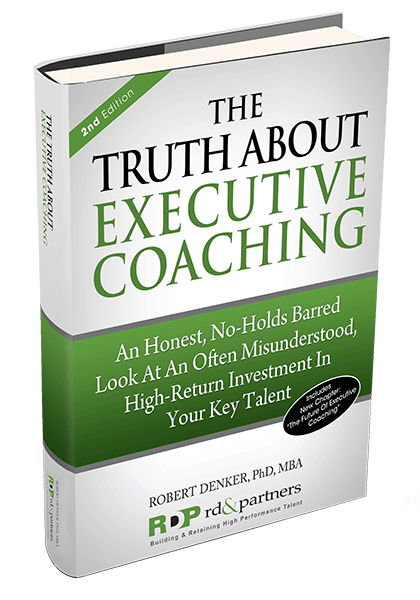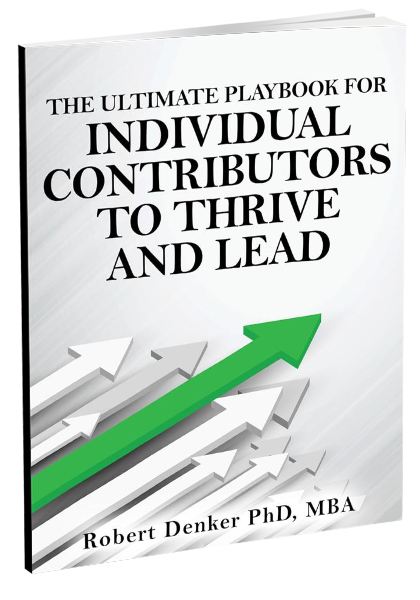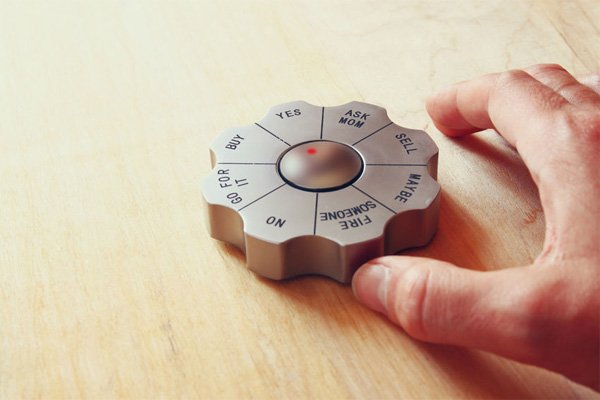The following post is an excerpt from a recent Leadership Leverage radio show. The interview has been edited for clarity and length.
Today we’ll be exploring the topic of leadership from a unique perspective – that is, we’ll be gaining an understanding of “mojo”.
In our discussion we’ll learn what mojo is, how to get it, how to keep it, and how to get our mojo back if we’ve lose it.To help us navigate this journey, our guest is Dr. Marshall Goldsmith – a distinguished educator, author, and one of the world’s most famous executive coaches.
His book entitled, “Mojo: How to Get It, How to Keep It, and How to Get It Back if You Lose It,” is a foundation for our dialogue today.
|
Listen to the full audio version of this transcript or download the MP3: |
Dr. Goldsmith is widely recognized as the world’s leading authority in helping successful leaders achieve positive, lasting change in behavior for themselves, their people, and their team and was named last year by The London Times and Forbes, as one of the 15 most influential business thinkers in the world.
His books have sold over a million copies and have been translated into 30 languages and his articles, videos, and resources have been viewed by more than 4 million visitors from over 195 countries, and can be accessed on marshallgoldsmithlibrary.com.
Mastering Your Mojo
Dr. Denker: You know Marshall, I have to ask you because I’m curious.
You’ve edited or authored more than 30 books. Why do this book, on this topic, at this point in your career?
Dr. Goldsmith: Mojo focuses on intrapersonal.
The previous book was how to become a better leader, build better relationships with others and Mojo is looking inside yourself and saying: “how can I find happiness and meaning in my own life?”
By the way, nobody can define that for me but me. Nobody can define that for you but you.
Dr. Denker: I think that’s a great point. So what exactly is mojo and maybe you can give the listeners a personal example, maybe the genesis of this whole idea?
Dr. Goldsmith: Well mojo is that positive spirit towards what you are doing.
 That starts from the inside and radiates to the outside.
That starts from the inside and radiates to the outside.
Mojo is something we can see as we journey through life.
For example, on American Airlines alone I have over 10 million frequent flyer miles. I’m always flying on a plane.
One flight attendant is positive, upbeat, motivated, enthusiastic. Another one is cynical, bitter, angry. They’re on the same plane with the same uniform at the same time.
What’s the difference? Well the difference is clearly not what’s coming from the outside.
The difference is what’s coming from the inside and mojo is something that varies by person and within the same person varies by activity and even within the same activity varies over time.
Your Mojo Starts With Your Identity
Dr. Denker: So Marshall what are some of the, what I would call building blocks, or maybe even a better word would be the ingredients of mojo?
Dr. Goldsmith: Well I talk about first our identity – how important identity is.
Another thing is achievement and I have a different definition of achievement that is normally what people talk about, our reputation, and that’s how other people view us.
And then finally probably the most important part of the book and for many people the most difficult, is acceptance.
Accepting what is being able to change what I can change and let go of what I can’t change.
So (to recap, your mojo consists of):
- Identity: who am I?
- Achievement: what am I doing?
- Reputation: how am I seen by the world?
- Acceptance: my ability to accept what is and change what I can and let go of what I can’t
The Four Components of Your Identity
Dr. Denker: Maybe we could take each one of these ingredients and you could highlight some of the salient aspects of each?
You talk first about identity. Talk more to us about what it is. How does one determine their identity?
Dr. Goldsmith: Well our identity comes with the intersection of the past and future, and the intersection of self and other.
I talk about four components of identity.
How do we know who we are? Mojo is that positive spirit of what you are doing.
It starts from the inside and radiates to the outside.
How do you know who you is?
- Well the first part of our identity is what I call our remembered identity. Remembered identity is how we view our past.
You think you’re a bad tennis player. Well how do you know that? You remember events where you lost playing tennis.
These memories shape your identity of who you are.
- The second part is called our reflective identity.
That’s what other people in the past have said about us.
For example part of your identity might be I’m a bad listener. Well how do you know you’re a bad listener? Well in the past, someone told you you were a bad listener. You accepted that feedback and it became part of your identity.
- The next one (third) is called our programmed identity.
Our programmed identity (uses the same feedback as our reflective identity), only what those people now project into our future (is) what we’re going to become.
I’ll give you a personal example.
I’m from a small town in Kentucky called Bally Station, Kentucky.
I was brought up in a low income, low education environment. My high school in the state of Kentucky test scores out of 220 was ranked number 218. So I wasn’t brought up in Harvard Prep.
The odds on me being one of the top 15 business thinkers in the world where I’m from? A little bit remote.
Well when I was brought up I had some different programming.
My mother went to college for two years and was a first grade school teacher.
My father had a two pump gas station.
My mother clearly did not want me to grow up and work at the gas station, (instead) she wanted me to go to college.
So when I was growing up what did my mother say in terms of programming for me?
She said, “Marshall, you are smart.” She didn’t say “you’re kind of smart” or “you’re extremely smart.” She said, “Marshall, you are the smartest little boy in Bally Station, Kentucky.”
She also said, “You are going to college.”
She said not maybe I’m going to college. She said, “You are going to college. In fact, you’re going to graduate school.”
 And she also said, “Marshall, you have no mechanical skills and you will never have any mechanical skills for the rest of your life.” I got this message.
And she also said, “Marshall, you have no mechanical skills and you will never have any mechanical skills for the rest of your life.” I got this message.
You have no mechanical skills. Well why? She didn’t want me to work in a gas station, right?
So I never had the courage to be on cars doing mechanical things.
So now my friends think I have no mechanical skills. My father says I have no mechanical skills. I’m 18 years old. I take a test – State’s Army Mechanical Aptitude Test.
That test was like “name that tool”.
They showed you pictures of tools and you had to guess the names. I scored in the bottom two percentile of the whole United States.
I was defeated by random chance.
Now I’m 26 years old. I’m getting my PhD at UCLA. I never questioned this.
I take a class from old Dr. [Tannenbaum].
He says, “Marshall, what do you do well?”
What did I write? Scholarly pursuits, research. What was I saying? Smart. What are you no good at? I had no mechanical skills. I will never have any mechanical skills.
He looked at me and says, “Well how do you know that?” I said “I took a test, it’s hopeless. I was defeated by random chance.”
He said, “How are your mathematical skills?” Oh, I said, “Nine courses of math past calculus. I have an undergraduate degree in mathematical economics.” Excellent mathematical skills.”
He said, “Why is it you can follow complex mathematical problems but you cannot solve simple mechanical problems?”
“Sure”, I said. “Good point.”
He said, “How’s your hand, eye coordination?” I said, “I guess it’s okay. I can play pinball games, shoot pool, and drink beer.”
He said, “Why is it you can play pinball games and shoot pool but you can’t hammer nails?”
When I was 26 years old I finally realized the only reason I had no mechanical skills was that I was told I had no mechanical skills. I believed that and it became a part of my identity and I lived up to it.
There was no logical reason I had no mechanical skills. It was just programmed.
We talk about ourselves, in many ways these programmed identities, as if they’re genetic facts when in reality they are often just messages we’ve bought in to.
- Now the final element of our identity is called our creative identity.
That is developing identity for our own future and saying who is the me I want to be? Who is this person I want to become and an example I use in the book is the rock star Bono.
Amazing guy. I had the privilege of having dinner with him one night. So I had two or three hours to talk and fortunately [he] didn’t ask me about his music because I knew nothing about it.
But he talked about his identity.
He started out being a regular guy and part of his identity [was], “regular guy.” And he’s still a regular guy. He used the f-word about every third word.
He apologized for swearing. I said, “I’m from Bally Station Kentucky. The f-word was the adjective that preceded all nouns. It really doesn’t bother me, right?” He’s still a regular guy.
Then he became a rock and roll fan, and he’s still a rock and roll fan. He talked about groups and how much he loved them and his face would all light up.
Then he became a musician and obviously is still a musician but not just to make money. He talked about being a musician and what it meant to him and playing by himself with family and how he loved it.
Then he became a rock star and he talked about what it’s like to be a rock star and he wasn’t bragging or showing off. That’s who he is. He’s a rock star, right? What it’s like to be a rock star.
Then finally now he’s a humanitarian. He talked about he was a humanitarian, how he was helping others. I watched this guy all night. He was so dedicated.
Dr. Denker: That’s right. And that’s an interesting story because when you see him advertised now there is more about his causes. I think he’s very involved in Africa.
Dr. Goldsmith: Oh, he is. He has established a whole new identity for himself as a humanitarian and the point I make in the book is I encourage the readers not to limit ourselves with our identity.
Not to sit there and say that’s just who I am as if we cannot change.
 The final point is we can establish a new identity without being a hypocrite or a phony.
The final point is we can establish a new identity without being a hypocrite or a phony.
He’s not a hypocrite or phony and he established a completely new identity for himself in a very positive way and my point is to the reader, we can all do that.
We don’t have to be locked into what we’ve been in the past. We don’t have to stereotype ourselves and we definitely don’t benefit from putting ourselves in a box.
Dr. Denker: So it’s really don’t play the role or become a victim in this. Whatever your remembered past is or your remembered identity or your reflected identity, you can change it.
Dr. Goldsmith: Exactly.
Your Mojo’s The Second Ingredient: Achievement
Dr. Denker: How about the second ingredient to mojo?
Dr. Goldsmith: The second is about achievement.
Now, I talk about achievement from two dimensions: One is what I call professional mojo and the second is what I call personal mojo.
Professional mojo, that is more traditionally the way we think of achievement. For example, you can do a check list to measure your professional [mojo].
Am I motivated? Do I have the ability to do it? Do I know what to do and how to do it? Do I have confidence and am I authentic when I’m doing this?
Well the answer is if you’re motivated, able, knowledgeable, confident, and authentic, you’re probably doing about the best job you can do at whatever you’re doing and that’s what I call professional mojo. That is what I am bringing to the task.
Now there is a second element though that is really different in the book is called personal mojo.
That is, what is the task bringing to me?
Does this task make me happy? Is it meaningful for me? Do I find it fulfilling? Am I grateful for the opportunity to do it? Do I feel I am supported when I do it and am I getting the rewards from this task that are important to me?
We’re All Going To Be Equally Dead…

Dr. Goldsmith: Our personal mojo is something – our professional mojo, you can measure results on that and the rest of the world can tell – but the personal mojo, that’s all on the inside.
What you need to do if your job, let’s say you get a high score in your professional mojo and you’re doing a great job, but on the inside, you don’t feel good yourself.
Buddy, you’ve got a problem.
I mean you’re doing a great job but maybe the wrong thing. One thing, I haven’t published this yet but in my new book I’m going to talk about, my research has kind of proven that we’re all going to be equally dead.
Let’s say you go through life with all this professional achievement but on the inside you’re not happy.
You don’t think it’s meaningful. You’re not grateful for the opportunity to do it. You don’t feel you’re supported and it’s not rewarding to you.
Well, question. Did you win or did you lose?
To me, you didn’t win.
Dr. Denker: Yeah you’re really getting to the core meaning of existence here with that question. Absolutely.
Dr. Goldsmith: So what if you achieve a lot of stuff on the outside and the rest of the world might think you’re successful.
Who are you kidding? If you haven’t convinced that person on the inside you just lost.
Your Mojo’s Third Ingredient: Reputation
Dr. Goldsmith: Now the third [ingredient], reputation.
Reputation is how the rest of the world sees us.
It is their perception of who we are and obviously this reputation impacts – all these connect to each other – our achievement impacts our reputation, our identity impacts our achievement and our reputation.
Our reputation is interesting because that’s what I do for a living.
What I do is not only help successful leaders achieve positive long term change in behavior, I really change their reputation, the way they are perceived by everyone around them.
And by the way I’ve learned it’s much harder to change reputation than it is to change behavior.
The best research principle in psychology is called cognitive dissonance theory.
We all view people in a manner that is consistent with our previous stereotype.
So if I have a stereotype of you that says you’re a bad listener, well your reputation to me is bad listener. I’m going to look for a bad listener in whatever you say or do.
In my coaching process, I teach leaders how to get feedback, talk to people about what they’ve learned, develop clear action plans, follow up in a disciplined way and measure improvement.
The “Brain Pill Test” – Would You Risk Changing Your Reputation?
Dr. Goldsmith: So I really teach people how we can change our reputation.
And by the way, we can change all of these elements.
We can change our identity, we can change our level of achievement, and we can change our reputation.
I talk about how we can change that reputation in the book using a fun exercise called “The Brain Pill Test.”
Dr. Denker: I’d like you to share that because I think that’s an important exercise to hear about.
Dr. Goldsmith: It’s fun.
It says imagine you could take a pill and after you take this pill, for the rest of your life, you will be 10 percent smarter. Your IQ is going to go up 10 percent and you get this permanently.
On the other hand for the rest of your life, the world is going to see you as 20 percent dumber.
 Do you take the pill?
Do you take the pill?
There is no right or wrong answer by the way. Each person’s answer could be different.
Do you take the pill? Let me ask you a question. What do you think? Would you take that pill?
Dr. Denker: No, I wouldn’t.
Dr. Goldsmith: Why not?
Dr. Denker: Because the business that I’m in, which is similar to yours, reputation is what it’s about. So as long as the clients perceive me in a positive light, that’s more important than my own intellectual horse power.
Dr. Goldsmith: I totally agree with you.
In my job, parallel to yours, my success or failure is based on my ability to help my clients and if my clients think I’m stupid, my ability to help my clients is going to go down.
Although I might know I’m smarter and I might be smarter, my ability to help others is going to be limited. So me, I would not take the pill.
On the other hand I’ve worked with other very good people who would take the pill.
They said, “You know, really I don’t care that much about reputation. What I’m more concerned about is my own intellectual achievement or my own art or my own skills and the rest of the world’s opinion doesn’t matter that much to me.”
What’s interesting is that there is not a right or a wrong answer to the question.
It’s a good question because it forces you to think.
Would you take the pill?
Then again, I wouldn’t, you wouldn’t, other people who are equally as good as you or me would take the pill for different reasons.
….Stay tuned for part 2. Subscribe to our newsletter and be notified when it is released on our website.
Chains/Sky image courtesy of Digital Photography School
Oprah image courtesy of PersonalExcellence.co
Pill image courtesy of theMinimalists.com






